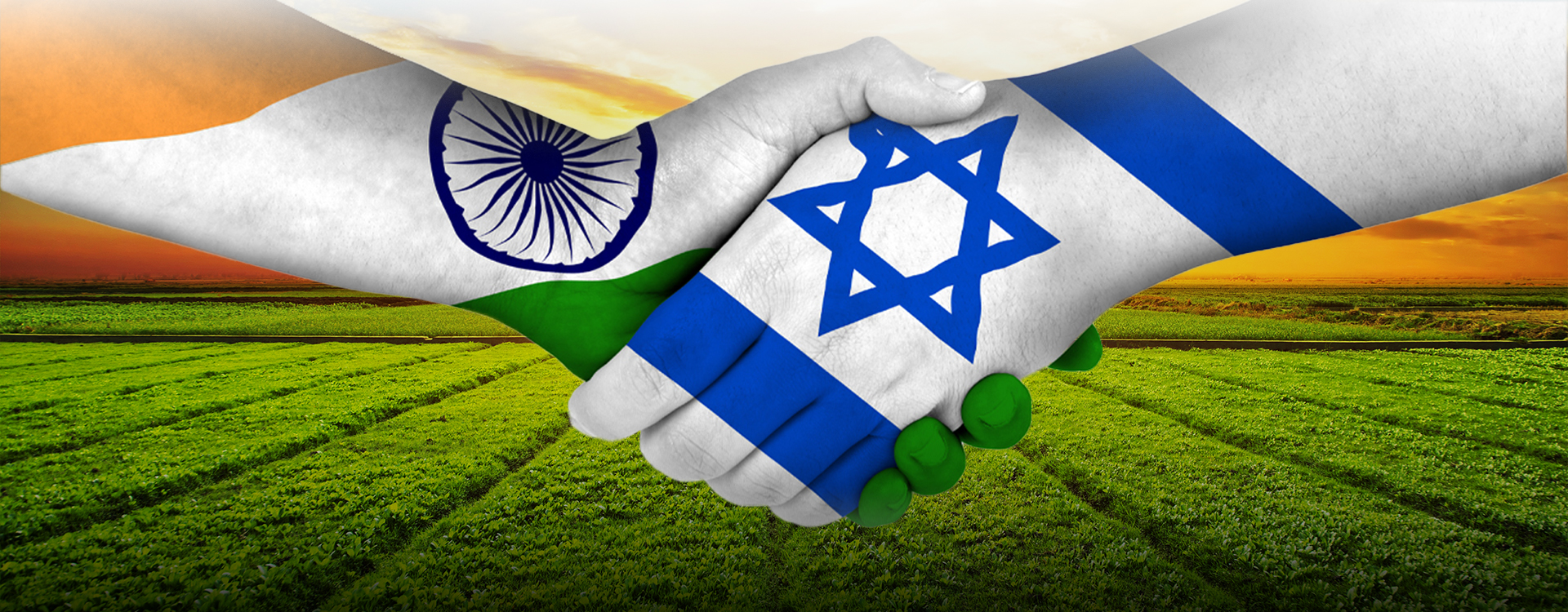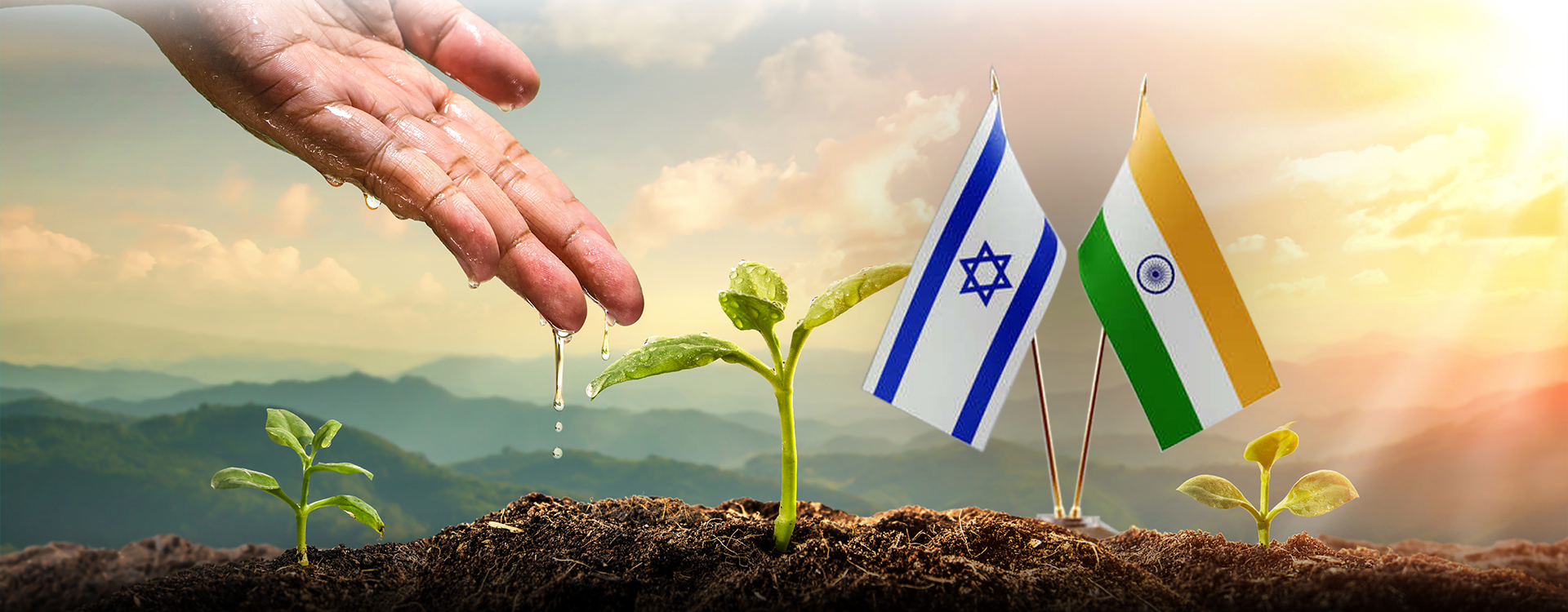India and Israel have signed a three-year action plan agreement to promote agricultural cooperation. In the course of three years (till 2023), the bilateral agreement is characterised as a joint action plan to strengthen technology-driven agricultural cooperation between the two nations.
So far, four joint action plans have been successfully completed. This is the fifth Indo-Israeli Agriculture Action Plan (IIAP). As part of the first plan, Centres of Excellence (COE) were established to train farmers in Israeli agriculture and water technology.
However, according to the new action plan, a model of agro-ecosystem excellence called Villages of Excellence (VoE) will be set up in eight states and 13 centres of excellence in 75 Indian villages. This will increase net income and improve the livelihood of individual farmers by converting traditional farms into modern intensive farms based on IIAP standards.
What is the New Three-year Work Programme for India?
The New Three-year Work Programme is an attempt to strengthen the bilateral relations and cooperation between the two countries in agriculture to benefit the farming community. The Centres of Excellence established as part of the Israeli action plan will significantly impact the doubling of farmers’ incomes. The program will exchange technology between India and Israel to increase the productivity and quality of agriculture using new tools, technology and digital adoption.
‘‘
The Action Plan aims to expand existing COEs and encourage private companies and partnerships.
The programme aims to grow existing Centres of Excellence, establish new centres, increase CoE’s value chain, and bring the Centres of Excellence into the independent convention. Both countries are implementing the “INDO-ISRAEL Agricultural Project Centres of Excellence” and “INDO-ISRAEL Villages of Excellence”.
India-Israel Villages of Excellence (IIVOE)
This is a new concept to create a model ecosystem in agriculture across eight states, alongside 13 Centers of Excellence within 75 villages. The program will encourage the increase of net income and better the subsistence of the individual farmer, converting traditional farms into modern-intensive fields based on Indo-Israel Agriculture Action Plan (IIAP) models.
Stakeholders will tailor a large-scale and complete value chain approach with economic sustainability, embedded with Israeli novel technologies and methodologies to local conditions. The IIVOE program will focus on:
Modern Agriculture Infrastructure
Capacity Building
Market Linkage

Bright Hopes for Farmers and SMEs operating in agriculture
As witnessed within the existing Indo-Israel projects, digital collaboration in agriculture has helped build the sector majorly. Further technological advancements will also help break the monopoly and decentralise the pricing mechanism and reduce transaction costs, thus guaranteeing higher yields to farmers.
Since farming is a productive data-driven sector, start-ups and SMEs providing digital tools can dramatically improve the livelihood of farmers by giving them easy to use digital tools to operate on and protecting them against price volatility.
Simple gadgets like mobile phones also enable farmers to integrate and operate in structured markets. SMEs in the agritech sector must recognise this area and work to help India’s most significant human capital segment to easily avail solutions like digital money, Direct Benefit Transfer system, online guides, etc.
Self-controlled watering systems, soil and crop experimentation through IoT devices, data analytics to increase crop yield, an online marketplace for farm produce, and alternate credit for farming entrepreneurs are areas where agritech SMEs can deliver breakthroughs. Indeed, agri-tech start-ups and companies, with government support, will disrupt traditional agriculture through technology, and the recent Indo-Israel programme is a step towards betterment.




